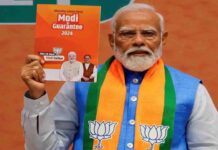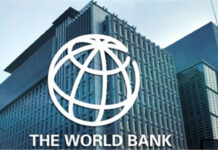By Sunil Prasad
Targeting India for buying Russian oil smacks West’s oil hypocrisy and exposes its misdirected mindset that continued purchase of Russian oil by India is fueling the war in Ukraine.
Ever since the invasion of Ukraine by Russia, India has been targeted by the West for supporting Russia and it’s enhanced economic relations – buying and even increasing its import of Russian oil. Such sales by Russia, according to West, are boosting Russian export revenues at a time when Brussels and Washington and their allies are trying to limit financial flows supporting Moscow’s war. On the other hand, India finds Russian oil an irresistible deal and an economic necessity, no matter how much the diplomatic pressure it is facing. Taking a harder line on Russia, during the last four months, a parade of American and European leaders including President of the European Union, have descended to New Delhi and have argued the “logic” and “need” to disconnect with Russia for the sake of global imperative. Buying Russian oil, according to European governments, is not in India’s long-term interest. Undermining sanctions, some Western leaders have starkly warned, could bring “consequences” for the country.
Europe and West must understand India’s strategic interest and how India is helping EU and America’s Indo-Pacific policy. It should also be noted in the first instance that India’s public neutrality toward the Russian invasion is driven fundamentally by its concerns vis-à-vis China and Pakistan. New Delhi sees both states as immediate and enduring threats, and it believes that preserving its friendship with Moscow will help to prevent deepening Russian ties with China and limit Russian temptations to build new strategic ties with Pakistan. Consequently, New Delhi aims to minimize Moscow’s proximity to both of its rivals. Toward that end, it has concluded that studiously avoiding any open criticism of Russia offers it a chance to arrest the tightening Sino-Russian embrace while preventing a new dalliance between Moscow and Islamabad, both of which undermine India’s core interests. This is what is in Europe’s interest in the broader context. It is obvious, India’s Russia policy is driven by geo-politics and geo-economics of the region, and its strategic interest.
India, right from the day one of the war, has been very clear that India’s response to the
Russian invasion of Ukraine has been distinctive among the major democracies and among U.S. strategic partners. Despite its discomfort with Moscow’s war, New Delhi has adopted a studied public neutrality toward Russia. India’s tightropes walk on the Ukraine war should be seen as “strategic ambivalence” and “economic necessity”. Whatever Europe and West think, India’s diplomatic neutrality ultimately signifies its decades old non-alignment policy.
It is important to dig into the history of Indo-Russian relations. India’s trade ties with Russia date to the South Asian country’s early days as an independent nation when it lacked a credit history and a well-established currency. Russia was among only a few traders willing to buy goods from India and accept Indian rupees as payment. With India taking a position of nonalignment through the Cold War, bilateral trade continued, allowing India to build its defense arsenal largely with Russian arms.
















